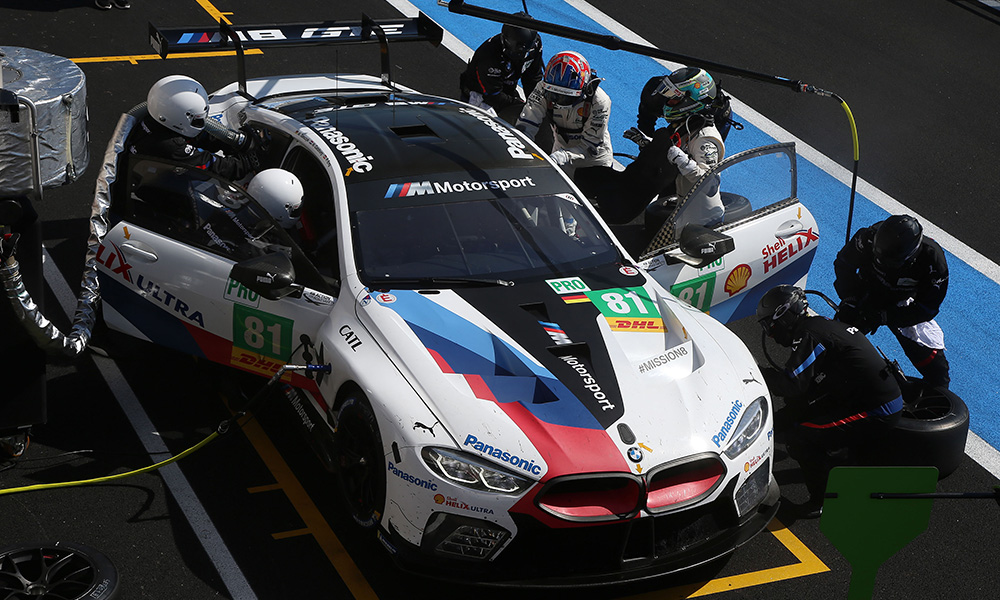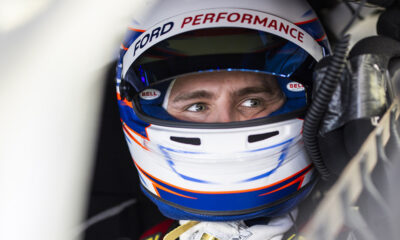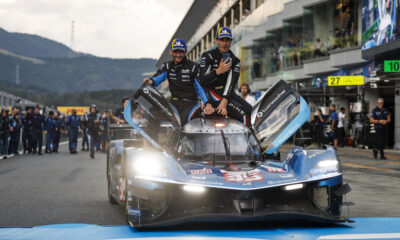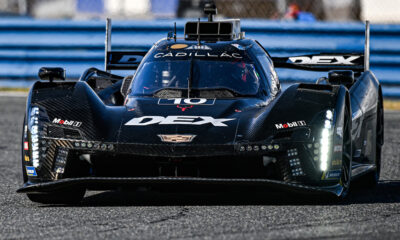
Photo: BMW
BMW Motorsport director Jens Marquardt believes the lessons learned from the M8 GTE’s first two race appearances has put them well-prepared for the car’s FIA World Endurance Championship debut this weekend at Spa.
The German manufacturer, which returns to the 24 Hours of Le Mans for the first time since 2011, will field a pair of MTEK-run BMWs in the globe-trotting championship for the first time in the highly competitive GTE-Pro class.
It comes after mixed results in January’s Rolex 24 at Daytona and Mobil 1 Twelve Hours of Sebring, amid Balance of Performance controversy in the car’s competition debut at Daytona.
While having rebounded to score a runner-up finish at Sebring with the Team RLL-prepared No. 25 BMW of Connor De Phillippi, Alexander Sims and Bill Auberlen, Marquardt is optimistic they can hit the ground running in WEC competition, particularly in the quick build-up to Le Mans.
“For sure having proven a brand-new car in a 24-hour and probably the toughest 12-hour event you can have on the planet, is a good ‘tick in the box’ for the program,” he said.
“At the same time, we also know that we had a few setbacks in the program when we came to the development phase of it, so I’d probably say we are now on a more level base than having an advantage.
“We learn with every running we have with the car but for me, it’s much, much more important and you can test as much as you want; racing conditions are different because the car is operated in different ways.”
“You never go as hard in a test as you go in a race, for that amount of time. For us, the important part was that we could prove the car in endurance in already two very tough events.”
Marquardt said minor changes have been made to the new-for-2018 car to ensure a better base package for the WEC season ahead.
“We have made small adjustments to see how things that we learned in Daytona and Sebring how it pays off in the package we’re running here,” he said.
“There is always some potential in the car, and obviously you’re going to very different tracks. So to figure [it] out and to be able to the maximum extract out of the car, you’re only going to achieve in the second year when you come to those places in the second year and you’ve learned about those places.
“Yes, for sure we’ll have a learning curve and for sure we’ll benefit from it maximum next year. But this year is what we have to deal with [now] and we have to try and find every single bit and every small bit from event to event.”
When asked about BMW’s prospects for Le Mans, which will not only mark the car’s debut in the French endurance classic, but also the first major endurance race for the Ernest Knoors-led MTEK squad, which makes the transition from DTM, Marquardt remains upbeat.
“Ford did it from the get-go and won it straight away with a new car,” he said. It has been done before.
“I think we’re experienced enough, not building the pressure too much, but it’s feasible.”
Schnitzer in the “Right Position” in BMW Family
Marquardt believes that longtime BMW partner Schnitzer Motorsport is in the “right place” in its global lineup, despite questions over why the Charly Lamm-led organization is not spearheading the manufacturer’s WEC program and return to Le Mans.
A six-time Nürburgring 24 winning-team, Schnitzer had also orchestrated BMW’s one-and-only overall victory at Le Mans in 1999, with its V12 LMR.
While having represented BMW in DTM for several years, the team has since been refocused on the brand’s GT3 efforts in ADAC GT Masters as well as several global GT races such as the Bathurst 12 Hour and FIA GT World Cup in Macau.
“I think Schnitzer is exactly in the right position where they are right now,” Marquardt said.
“We saw that last year. They brought us in ADAC GT Masters straight up to the front; we were fighting for the championship there straight away and they did a fantastic job in Macau and in Bathurst.
“With Charly and them re-organizing themselves, we’ve found exactly the right spot for them.
“It was important for us to continue on programs that are important to us with good teams like Schnitzer, but have one team focused completely on the preparation for [WEC].
“Because at the end of the day, the championship is way too tight and you can’t do it sort of on the side.
“That’s why we decided to have fully focused teams, also with the decision to reduce DTM into two teams only with three cars and have fully dedicated operations.”



























